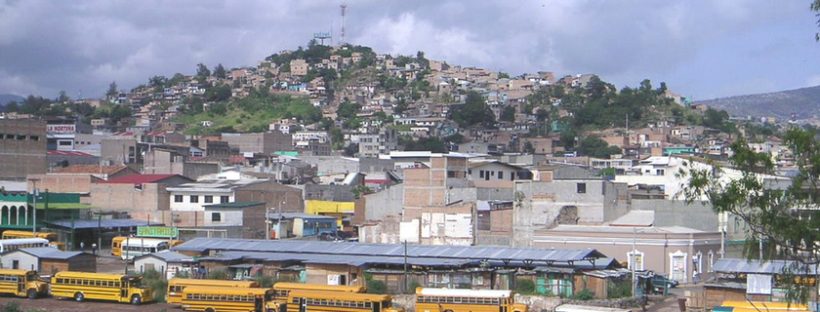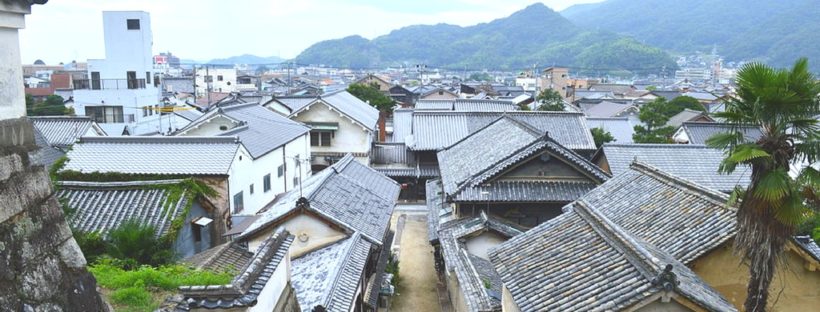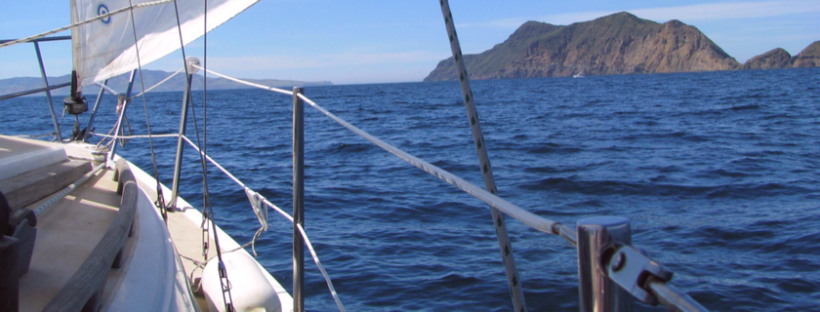 Justine Pattantyus coaches people through major life transitions. She spoke to me from Lisbon, Portugal, as she was embarking on a major life transition of her own.
Justine Pattantyus coaches people through major life transitions. She spoke to me from Lisbon, Portugal, as she was embarking on a major life transition of her own.
What’s your travel story?
My family is from Hungary, most of extended family is there. My grandparents were refugees in the U.K. until my grandfather got hired by an engineering firm in the U.S. in 1963. My dad was in the U.S. army. I was born in Germany, but we moved back to the States when I was really young. As a girl, I read Nat Geo and books about travel. I’ve always been fascinated by the world.
But I didn’t travel (except for Canada) until my junior year in college when I went to Australia for a field study in sustainability and the environment. And the next year I got a scholarship to go to the UAE to study women’s leadership, and to Eastern Europe (Prague, Vienna, Bratislava, Budapest), where I got to visit my extended family.
How do you support yourself?
After college I worked on a project helping children to eat better. I worked a couple of corporate jobs, but didn’t like that. Then I started my own business, and met my boyfriend who had started his own location-independent business in the Philippines. I was inspired to see the world on my own terms. Not just for short jaunts, but to be embedded in the culture.
I joined the Dynamite Circle, a membership community for business owners who work from everywhere. It took me about a year to be sure I could continue to provide a high level of service to my clients while I was abroad. In that time, I talked to other people who have clients in different parts of the world, to learn what I needed to have in place to be successful. That helped me build my confidence. I started shifting client expectations. They need to know that even if I’m available to that only at certain times, I’m no less responsive or supportive than before.
Before, I was doing business management; now I’m doing individual coaching, helping business owners step through a door of change. I help them align internally and reorient externally so that what they want to occur becomes inevitable. I’m happy that my clients have all achieved what they set out to achieve!
How did you decide on Lisbon?
My boyfriend and I have friends in Portugal who kept encouraging us to come. We hadn’t considered Portugal, but as soon as we researched it, it sounded great. The food is great; it’s sunny, affordable, with beautiful beaches.
We booked our flights and applied for resident visas. With this type of visa, you needed to show that you have a way of supporting yourself without needing a job. You can stay for a year and you can extend the visa for 2 years. It’s a bit of a process: You have to write a letter of intent; send all your tax forms; show proof that you earn at least $50,000/U.S. a year and don’t need a job in Portugal; send your fingerprints, FBI background checks, proof of traveler’s health insurance. We got approved while we were here.
We’ve been in Portugal for 49 weeks, a bit shy of a year.
What do you like best about Lisbon?
I’ve traveled to probably 40 American states and been to a lot of cities; Lisbon is way up there, easily in my top three. It’s about the same size as Boston, but with much better weather! Even in the winter, you get a bit more rain but it’s still so nice.
It’s so laid-back; there’s a great sense of hospitality and people take pride in their country. Every cab or Uber driver or restaurant owner asks me, “How is Lisbon treating you? How do you like it?” I’ve enjoyed it so much.
Lisbon has a strong sense of identity. There so much history, street art, great restaurants. It’s like there’s an unwritten invitation from the city, “I am who I am, so just show up and be who you are.”
I live a 10-minute walk to the train. I can ride 40 minutes to the beach for $2. I live a 15-minute walk to my favorite park. There are great dentists and doctors. I’m a 25-minute walk from some of the major attractions in the city.
I wasn’t sure how I would feel not having a car. I’ve really enjoyed it. Now freedom is being able to walk out of my door and end up anywhere I want to. The cost of living is great here. I can have a fully stocked fridge for like $60. I live in the city center, in a relatively more expensive spot . We pay 1000 euros/month, which includes water, internet, plus a once-a-week house cleaner!
Just walking around Lisbon, there are always new things to discover: shops, staircases, great little squares with food kiosks where you can get little sandwiches, espresso, sangria. A lot of bands come through town. Look out points are often places where bands or musicians play. There are tons of excellent restaurants, and it feels very, very safe here.
Some favorite spots: The Oceanário (aquarium) and the São Jorge Castle. Taking the train to the beach and renting a bike and taking the bike path out to a far beach. Taking the train to Sintra, where there’s a national park that’s gorgeously lush and forested, with beautiful hiking spots, and a Moorish castle.
People here don’t live to work; they definitely live! There are lots of classes, like pole dancing and salsa. And coffee shops. And wandering to the park with a blanket and relaxing. Lots of families with kids walking around. There are festivals throughout June, when people are dancing and grilling in the streets. You can even see it in the coffeeshops. They’re don’t ask you to pay right away; you hang out and enjoy yourself. They assume if you’re taking the table, you’re there for the evening.
What are some of your biggest challenges there?
People do not clean up after their dogs! You have to keep watching for dog poop while you walk. And a lot of people smoke, so there’s smoke out on the street (though not inside most restaurants). And in the touristy areas, you’ll have people coming up to you trying to sell you drugs. Drugs are decriminalized here (I think all of them were, back in the 1970s). And by the way, this country has some of the lowest drug issues.
But really, these things don’t bother me much. There’s not much I don’t like.
What’s your social life like? How do you meet people there?
There are a couple dozen people here from our business owner friends group. I meet people through them mostly. People use MeetUp here a lot, and Facebook groups. Going to the yoga studio and dance classes and co-working spaces puts me in contact with people I have things in common with.
I’ve met some people through International Women in Lisbon. And there’s a great Creative Mornings group here. It’s a social/learning event where creative people get together; there’s a talk on a topic of interest. About 50 people show up, there’s breakfast and it’s free.
About 75% of my friends are expats. I speak a very little bit of Portuguese. In Lisbon everybody speaks English; in fact if you try to speak in Portuguese people will often switch over to English.
What’s next for you?
We could have extended our visas for another two years, but the world is a big place!
To help decide where to go next, we used Nomad List, a website where you can do research on different locations. We plugged in our criteria: not a big city, somewhere tropical on the beach, relatively safe with decent internet.
So later this month, we’re leaving Lisbon for Playa del Carmen, Mexico. We plan to live in Mexico for the rest of 2017. We have an AirBnB there for the first two weeks. After we get there, we’ll start looking for a more long-term apartment. I have contacts for real estate agents there, and I’ve joined about five Playa nomads groups on Facebook, which are super helpful for finding things like furniture and motorbikes.
Any advice for women who want to move abroad?
It’s been really helpful for me to have a network that I can reach out to for clarification on things like visas, living situations, working with client schedules and more. So build some kind of network for yourself, if you can.
And get clear on your level of desire to move. If you really know that you want to be abroad, if it’s only a matter of if, not when, then what are the sticking points? What are the foundational pieces that need to be clarified and handled, so that it becomes a yes?
Once those pieces are handled, take the leap and figure the rest out as you go.




 Leslie Wier wanted to come to Japan ever since I was a kid. She’s been in Hiroshima City for almost four years, working as an English teacher with the JET program and completing a graduate degree.
Leslie Wier wanted to come to Japan ever since I was a kid. She’s been in Hiroshima City for almost four years, working as an English teacher with the JET program and completing a graduate degree.
 So how did this sailing life start for you?
So how did this sailing life start for you?